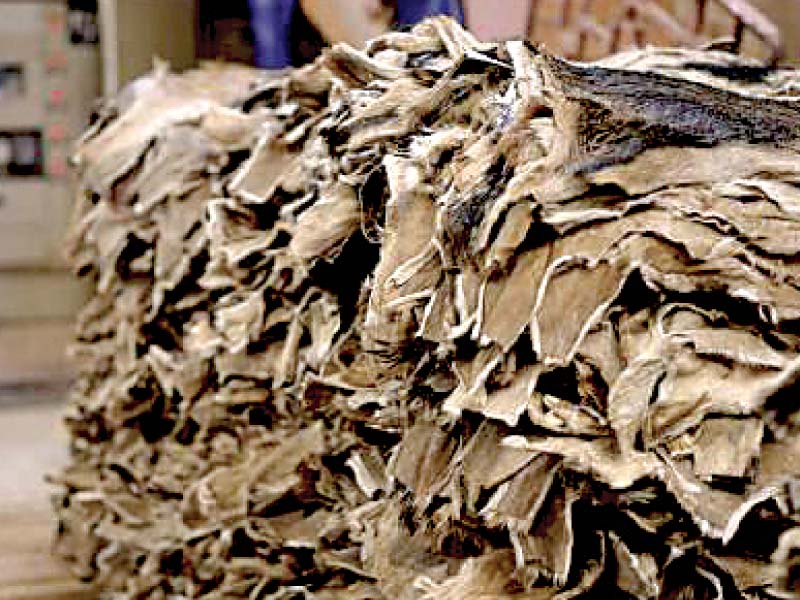
The prices of skins and rawhides of sacrificial animals touched the lowest ebb in the provincial capital owing to coronavirus lockdown and the muggy and rainy season which quickly damages the hides.
The lowest ever rates were witnessed in hides markets on as cow, calf and bull hides were traded between Rs400 to Rs800 per skin. Last year, these hides were traded up to Rs1,400.
Similarly, a goat hide was traded between the Rs100 and 120 per skin as compared to the last year average price of Rs200 per skin, while a sheepskin price was only Rs50 this year as compared to the last year of Rs120 to Rs150 per skin.
The Pakistan Tanners Association (PTA) former chairman Agha Saidan pointed out that tanners were avoiding buying stock this year owing to the on-going pandemic and global economic meltdown. He highlighted that demand for leather products was adversely affected owing to coronavirus pandemic as buyers have shifted their focus toward other goods.
A large number of tanneries have already closed their operations owing to coronavirus lockdowns while exports of the leather products were also showing sluggish trends.
All these incidents have compelled tanners to stop their operations and closed their production units. Tanneries were already holding carryover stocks of previous years too and facing liquidity issues owing to coronavirus pandemic, he added.
He highlighted according to tanners estimates almost 30% less slaughtering was calculated this year due to coronavirus and adverse economic situation of the country which shrunk the purchasing power of the masses.
The poor and the middle class were badly affected by the economic recession which resulted in a decline in the slaughtering of animals. In addition, around 30% increase was witnessed in sacrificial animal prices which further reduced slaughtering of sacrificial animals.
As per the PTA estimates, he indicated, last year around 8.1 million animals were slaughtered on Eidul Azha. This year it reduced to less than six million, including two million cows, three million goats, 800,000 sheep and 60,000 camels.
Published in The Express Tribune, August 5th, 2020.

















COMMENTS
Comments are moderated and generally will be posted if they are on-topic and not abusive.
For more information, please see our Comments FAQ